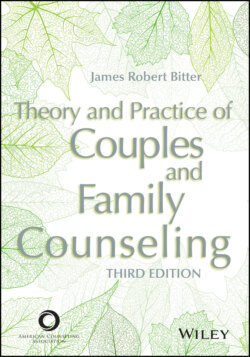Читать книгу Theory and Practice of Couples and Family Counseling - James Robert Bitter - Страница 38
The Systems Perspective
ОглавлениеPerhaps the most difficult adjustment counselors living in Western cultures make is adopting a systems perspective, which goes against all of the values and experiences associated with individualism, autonomy, independence, and free choice. In the more collectivist cultures of Asia, interdependence, family embeddedness and connectedness, hierarchies of relationship, and multigenerational—even an-cestral—perspectives inform daily experiences and cultural views: A systems perspective seems normal there. Yet even in Western cultures—indeed, in all parts of the world—humans are born into families, and most people spend their lives in one form of family or another. It is in these families that individuals discover who they are. Families and systems are where people grow and develop, survive tragedies, and celebrate accomplishments and good times. Few of us do any of these things alone.
As we get older, we move into other systems (the school, the church, the community, and society in general). For most of us, the family still serves as a home base, the place to which we constantly return and from which we evaluate people and processes in the other systems we encounter. The often unspoken rules and routines of the family give us a sense of constancy and familiarity in life; hopefully, they also provide us with a feeling of safety and a sense of what it means to be functional and capable of handling the tasks and challenges of life.
